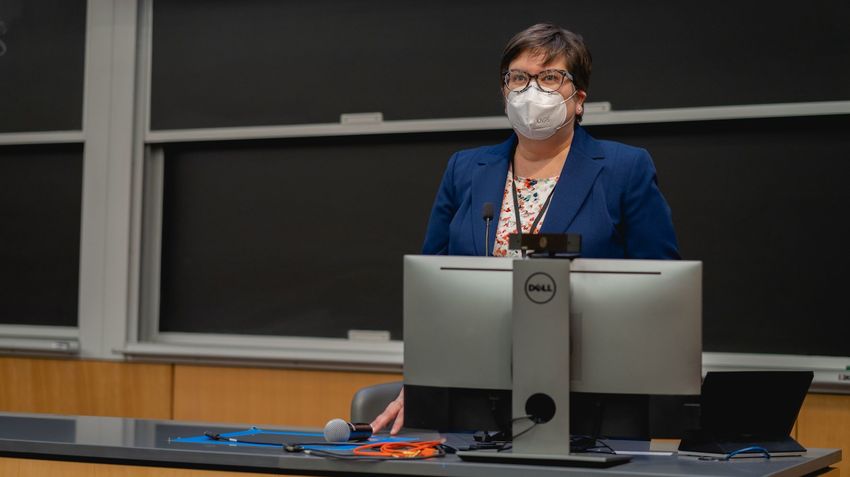
The Department of Epidemiology and Biostatistics has co-founded a new collaboration bringing together epidemiologists and biostatisticians from multiple universities to partner on research and pursue opportunities to aid the City of Philadelphia’s Department of Public Health. The Philadelphia Epidemiology and Biostatistics Research and Practice Collaborative, formed in the wake of COVID-19, includes epidemiology and biostatistics faculty at the College of Public Health, Drexel University, Thomas Jefferson University, and the University of Pennsylvania.
“We want to think about opportunities for true synergy between our institutions and with the Department of Public Health,” says Resa M. Jones, co-founder of the collaborative and chair of the Department of Epidemiology and Biostatistics. “The aim is to develop opportunities for collaboration in research and practice that ultimately have a community-wide impact.”
The Collaborative made a high-profile debut in March. Its first annual symposium—themed “Intersecting Pandemics: COVID-19 and Health Disparities”—also served as the mid-year meeting of the Society for Epidemiologic Research, a national professional organization. More than 100 people attended the daylong event, some in person at Temple’s Science and Education Research Center and some remotely from around the country.
Recai Yucel, professor of biostatistics, presented research on findings from a southeastern Pennsylvania household survey on healthcare access for minority groups. Doctoral student Ryan Snead discussed a survey of Temple college students about their knowledge, attitudes and beliefs toward masking and COVID-19 vaccination. The Collaborative’s annual symposium (another is planned for next spring) is set up to include sessions about research as well as program implementation, whereas many conferences in the field focus on just one or the other, Jones says.
Cheryl Bettigole, Philadelphia's health commissioner, delivered the symposium keynote. She connected the dual pandemics of COVID-19 and health disparities, sharing the city’s COVID-19 data and a list of risk factors for more severe forms of COVID-19, including obesity, smoking, and diabetes. “When we look at the medical risk factors, it’s really very striking that most of them have a relationship to poverty and to the risk factors that accompany poverty and racism in this country,” she said.
The City of Philadelphia’s Department of Public Health collects and analyzes a wide range of data to understand its health challenges and disparities and to guide its policies. The Collaborative will pursue projects where faculty and students from the member schools can assist the city in interpreting the data. Universities have worked individually with the city, “but there's really been nothing that's been done more holistically, thinking about how we can do something that involves all of us,” Jones says.
The collaborative’s projects could give CPH epidemiology and biostatistics students increased opportunities for fieldwork experience. That could include internships for undergraduates and capstone projects for graduate students.
